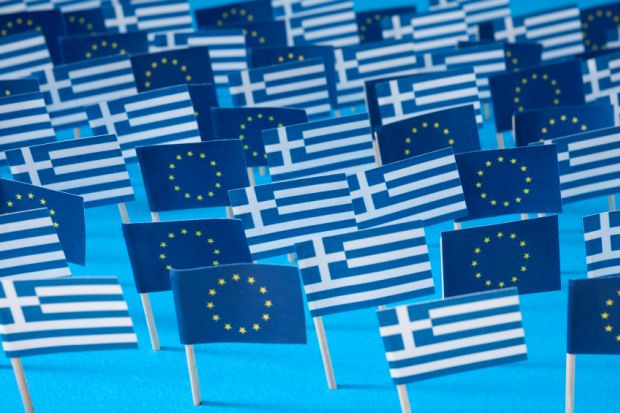“Problem with putting economists into politics is they tend to act on principle,” tweeted Paul Mason, the Channel 4 News economics editor, on this morning’s news that Yanis Varoufakis had resigned as Greece’s finance minister.
Others, including the Greek government’s creditors, are less favourable in their judgement on Varoufakis, who took his PhD at the University of Essex and gave up a job at the University of Texas at Austin to become finance minister.
Varoufakis, who will feel Greece's referendum result vindicates his insistence that no bailout be agreed without debt relief, says on his Twitter bio that he had been “quietly writing obscure academic texts for years, until thrust onto the public scene by Europe’s inane handling of an inevitable crisis”.
Alexis Tsipras, Greece’s prime minister, has opted to replace him with another academic economist, Euclid Tsakalotos, the former deputy foreign minister who has been a leading member of the Greek government negotiating team attempting to strike a deal with its creditors.
Tsakalotos went to school at the private St Paul’s in London, studied politics, philosophy and economics at the University of Oxford as an undergraduate, took a master’s at the University of Sussex, a PhD at Oxford, then worked as a lecturer at the University of Kent in the early 1990s. He was latterly a professor of economics at National and Kapidistrian University of Athens.
Tsakalotos’ credentials are already under question after it emerged that he wrote a 2010 paper on the Greek crisis entirely in the font Comic Sans.
Mason, an experienced Greece watcher, has described Tsakalotos as a “classic Marxist of the New Left” who is committed to Euro membership.
Before Varoufakis got the push, the EU appears to have started blaming his academic specialism in game theory for his negotiating tactics.
Varoufakis had calculated that the EU would never allow Greece to exit from the euro and thus the Greek government’s negotiations prior to Sunday’s referendum were “fake”, according to this version of events. “Things happened too fast for game theorist [Varoufakis] to adapt, and not only is he destroying his economy, but has made a huge tactical mistake,” an EU official had been quoted as saying.
The EU, the IMF and the ECB have no doubt scrutinised Tsakalotos’ academic papers already.
Register to continue
Why register?
- Registration is free and only takes a moment
- Once registered, you can read 3 articles a month
- Sign up for our newsletter
Subscribe
Or subscribe for unlimited access to:
- Unlimited access to news, views, insights & reviews
- Digital editions
- Digital access to THE’s university and college rankings analysis
Already registered or a current subscriber? Login







